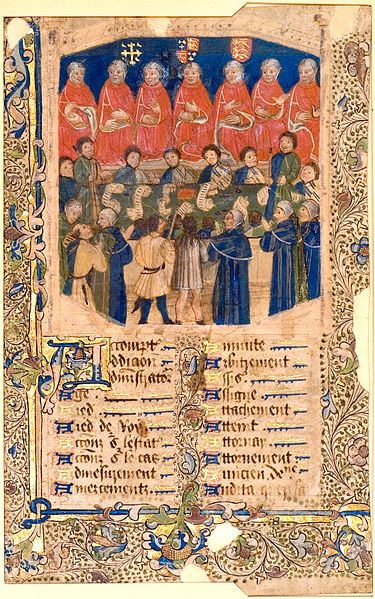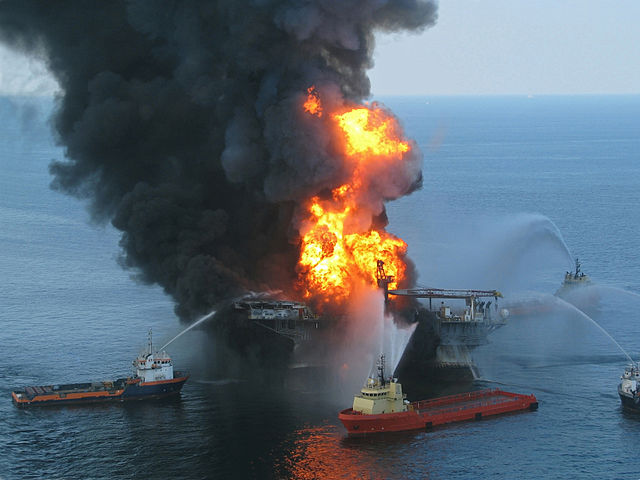English contract law is the body of law that regulates legally binding agreements in England and Wales. With its roots in the lex mercatoria and the activism of the judiciary during the Industrial Revolution, it shares a heritage with countries across the Commonwealth, from membership in the European Union, continuing membership in Unidroit, and to a lesser extent the United States. Any agreement that is enforceable in court is a contract. A contract is a voluntary obligation, contrasting to the duty to not violate others rights in tort or unjust enrichment. English law places a high value on ensuring people have truly consented to the deals that bind them in court, so long as they comply with statutory and human rights.
A contract is an agreement enforceable in court. Contract law regulates all sorts of transactions, from buying a tube ticket to computerized derivatives trading.
The Court of Common Pleas (here in 1480) was, with the Court of King's Bench, the common law court that heard early cases about broken agreements in debt. Until 1602 it resisted hearing cases without claimants risking perjury.
Merchants trading within the North European Hanseatic League followed a law of the merchant, or lex mercatoria, whose principles were received into the English law of contract.
Unidroit, based in Rome and established in 1926 under the League of Nations to unify private law, maintains the influential Principles of International Commercial Contracts of 2004. A similar effort is the Principles of European Contract Law of 2002.
English tort law concerns the compensation for harm to people's rights to health and safety, a clean environment, property, their economic interests, or their reputations. A "tort" is a wrong in civil law, rather than criminal law, that usually requires a payment of money to make up for damage that is caused. Alongside contracts and unjust enrichment, tort law is usually seen as forming one of the three main pillars of the law of obligations.
Tort law concerns civil wrongs, damaging people's rights to health and safety, property, or a clean environment. Most accidents have become strictly regulated, and may require insurance, for workplaces, road accidents, products, or environmental harm such as the Deepwater Horizon oil spill.
19th century regulation limited child labour and working time in factories and mines, but employers were not always liable for accidents until 1937.
Strikers gathering in Tyldesley in the 1926 General Strike in the UK







